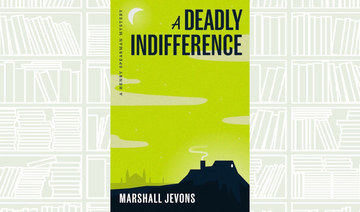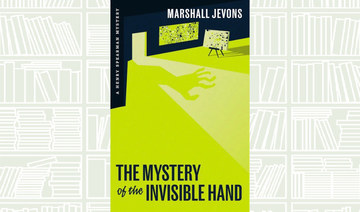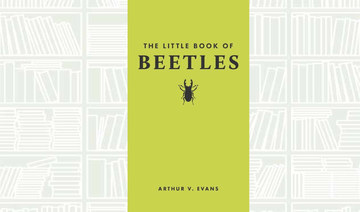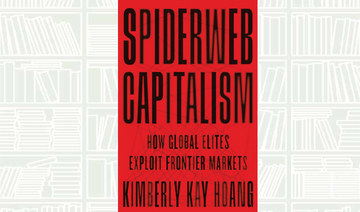SHARJAH: In a red cape, dark hair blowing in the wind, he crosses the dunes under a blazing sun: Antara, the famed 6th century Arab poet born a slave, is now a superhero.
A pre-Islamic poet, Antara is celebrated in the collective memory of Arabs as well as in pop culture — a child born to a tribal leader and his Abyssinian slave who rose as a warrior-poet to free himself and demand his father recognize him as his son, and a free man.
Now, he stars in his own comic strip, reimagined as a shield-wielding, cape-wearing superhero by Egyptian writer Mumen Hilmi and renowned Indian illustrator Ashraf Ghuri.
The story of Antara breaks across the class and race lines that frequently dominate society, the “perfect example of what it means to be a superhero,” writer Hilmi says.
“Arabs like the exaggerated personality traits of heroes, and we thought why not transform Antara into a superhero like those you see in the US, Europe, Japan.”
“Antara” is the first comic strip to be published by Kalimat, a publishing house based in the UAE emirate of Sharjah which specializes in Arabic translations of Japanese manga and US cartoonist Nick Seluk’s series, “The Awkward Yeti” and “Heart and Brain.”
The story weaves a tale of bravery, slavery, freedom, loyalty and love — and co-stars his beloved Abla, daughter of a tribal sheikh and object of Antara’s undying affection.
Antara casts off the shackles of his early life to rise as a warrior and claim his rightful place as the son of Shaddad, leader of the Banu Abs tribe.
But the facts of Antara’s life remain unclear: one tale holds that Antara ibn Shaddad Al-Absi was born to an Ethiopian princess; another more popular tale holds that he was born to a dark-skinned Abyssinian slave.
Antara’s father, a tribal chief from what is today western Saudi Arabia, refused to recognize his son, who was thus born a slave.
Antara rebelled against his status as a slave when, after valiantly defending his tribe, he was given only half the compensation granted to warriors.
He went into self-imposed exile in the desert and refused to participate in the defense of his tribe — until he was one day called on to come to the aid of his people.
Legend has it that that was how Antara earned his freedom.
The comic strip narrates “the beginning of his life as a slave, mistreated by his tribe because of the color of his skin and the status of his mother, to become a hero on the frontline,” Hilmi says.
Antara’s strength is matched only by his poetry, which has two main themes: his wartime exploits, and his love for his cousin Abla, the daughter of a tribal sheikh.
Whether Antara and Abla’s love story had a happy ending, or ended in tragedy, no one knows.
But Antara’s famed poetry is still taught in curricula across the Arab world, with his “Mu’allaqa” — part of the pre-Islamic canon of Arabic poetry — hung in the holy city of Makkah and still the source of many a catchphrase in popular culture.
“Often, I’ve defended/the women of Amir/ their legs slim/and tender as stalks/ from the onslaught of armed raiders,” reads an English translation of Antara’s “War Songs,” published by NYU Press.
“I won’t be able/to outrun Fate/when she comes.
“Cowards run. I stand/my ground.”
Antara has served as the inspiration for artists and musicians around the world, with 19th century Russian composer Nikolai Rimsky-Korsakov dedicating a symphony in four movements to his story.
The creators of the “Antara” comic strip believe the legend will resonate with modern audiences both within the Arab world and across the globe.
“This story has universal appeal,” said Hilmi, particularly as it deals with racism.
“We incorporated illustrations of what we imagined to be Antara’s childhood, when he first faced discrimination and mistreatment at the hands of his peers and his father.”
The cause of Antara’s death is also a matter of debate, with some saying the warrior died of natural causes and others pointing to evidence that he was killed by a poisoned arrow.
The comic strip does not offer answers.
While it leaves questions of Antara’s life and demise hanging, the creators’ focus is quite clear.
In a face-off with his father, a bearded Antara clenches his fist and stands tall: “I want nothing but what every child wants of his father.
Legendary Arab poet Antara rises as comic book superhero
Legendary Arab poet Antara rises as comic book superhero

- A pre-Islamic poet, Antara is celebrated in the collective memory of Arabs as well as in pop culture
- Antara has served as the inspiration for artists and musicians around the world
What We Are Reading Today: The Princeton Field Guide to Dinosaurs

Author: Gregory S. Paul
The bestselling “Princeton Field Guide to Dinosaurs” remains the must-have book for anyone who loves dinosaurs, from amateur enthusiasts to professional paleontologists. Now extensively revised and expanded, this dazzlingly illustrated large-format edition features nearly 100 new dinosaur species and hundreds of new and updated illustrations, bringing readers up to the minute on the latest discoveries and research that are radically transforming what we know about dinosaurs and their world.
What We Are Reading Today: The Virtue Proposition by Sig Berg
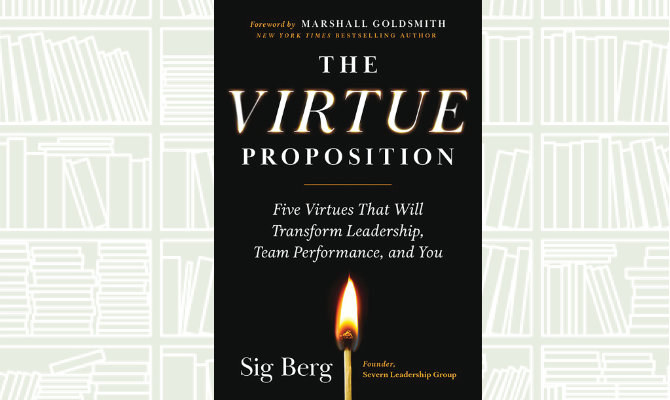
Sig Berg, founder of the Severn Leadership Group, explains what’s missing from traditional leadership, with its emphasis on the rules and rituals of boardrooms and C-suites, and from iconoclastic leadership, which urges you to move fast and break things.
Neither of these embrace virtues, and neither has, nor ever will, deliver consistent superior results.
There is a courageous third way: virtuous leadership.
This book speaks to men and women who witness the absence of virtues and know they can do better, says a review published on goodreads.com.
What We Are Reading Today: ‘Stellar English’
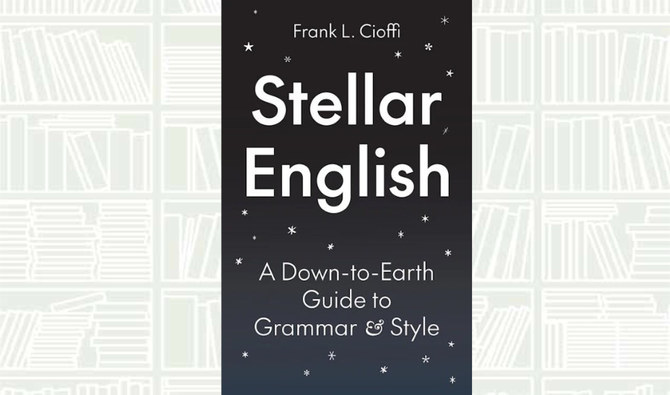
Author: FRANK L. CIOFFI
“Stellar English” lays out the fundamentals of effective writing, from word choice and punctuation to parts of speech and common errors.
Frank Cioffi emphasizes how formal written English—though only a sub-dialect of the language—enables writers to reach a wide and heterogenous audience.
Cioffi’s many example sentences illustrating grammatical principles tilt in an otherworldly direction, making up a science fiction story involving alien invasion.
What We Are Reading Today: A Deadly Indifference
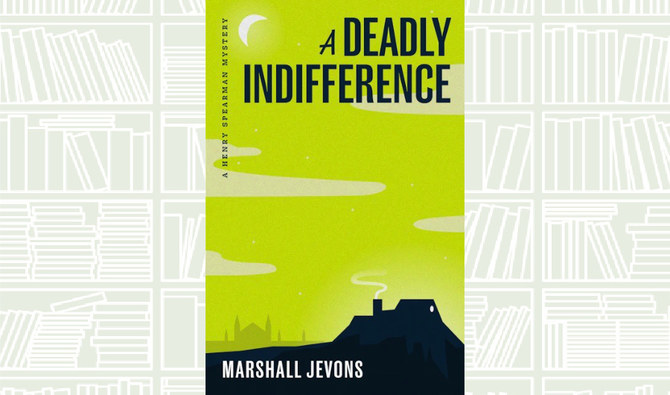
Author: Marshall Jevons
Harvard professor Henry Spearman—an ingenious amateur sleuth who uses economics to size up every situation—is sent by an American entrepreneur to Cambridge, England.
Spearman’s mission is to scout out the purchase of the most famous house in economic science: Balliol Croft, the former home of Professor Alfred Marshall, John Maynard Keynes’s teacher and the font of modern economic theory.
After a shocking murder, Spearman realizes that his own life is in danger as he finds himself face-to-face with the most diabolical killer in his career.
What We Are Reading Today: The Mystery of the Invisible Hand
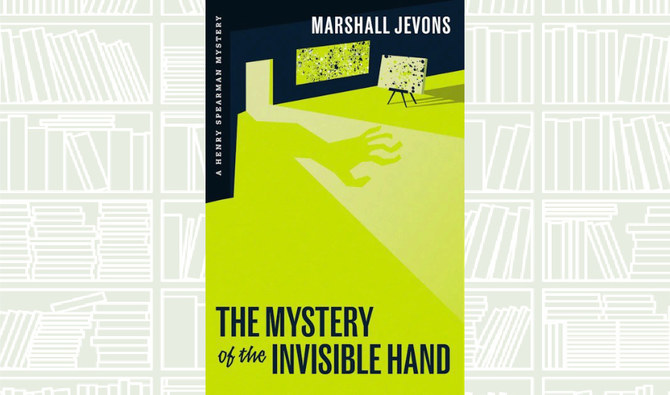
Author: Marshall Jevons
In “The Mystery of the Invisible Hand,” Henry Spearman, an economics professor with a knack for solving crimes, is pulled into a case that mixes campus intrigue, stolen art, and murder.
Arriving at San Antonio’s Monte Vista University to teach a course on art and economics, he is confronted with a puzzling art theft and the suspicious suicide of the school’s artist-in-residence.
From Texas to New York, Spearman traces the connections between economics and the art world, finding his clues in monopolies, auction theory, and Adam Smith.






